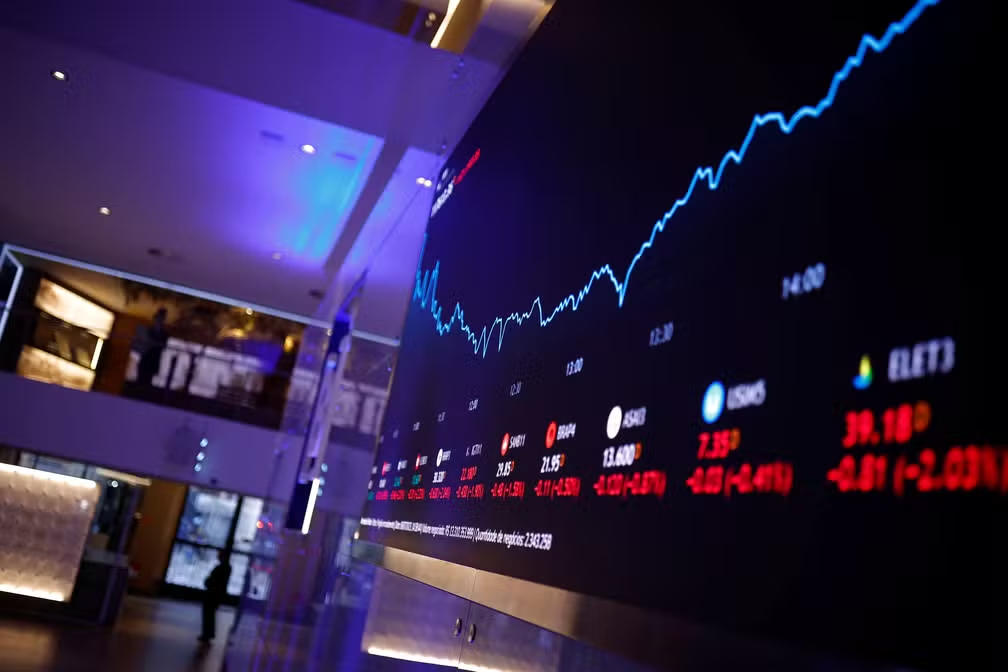Can the Market Ever Be Fully Predictable?
Imagine watching your portfolio lose 20% of its value overnight due to an unexpected geopolitical conflict. Or seeing tech stocks surge because of a single AI breakthrough. These scenarios aren’t hypothetical—they’ve happened. The stock market doesn’t operate in a vacuum. It’s a living, breathing organism that reacts to every pulse of global events.
In this article, we’ll explore how external events dramatically influence the stock market, highlight the most significant global occurrences of the past decade, and investigate the rising role of artificial intelligence in shaping modern-day market dynamics. Whether you’re an investor, a student of finance, or simply curious, this deep dive will offer insights you won’t easily find elsewhere.
How External Events Drive Market Volatility
External events—anything from a virus outbreak to regulatory changes—can have immediate and dramatic effects on investor sentiment and market prices. These shocks often trigger a chain reaction that impacts supply chains, consumer behavior, and company valuations.
Key types of external events that influence the market include:
-
Geopolitical events (wars, elections, policy changes)
-
Natural disasters and pandemics
-
Technological breakthroughs
-
Monetary and fiscal policies
-
Regulatory changes
-
Social movements and unrest
Let’s explore some concrete historical examples.
Top External Events That Moved the Stock Market (2014–2024)
Here’s a curated list of major global events over the past 10 years that sent shockwaves through the stock markets:
1. COVID-19 Pandemic (2020)
-
Impact: Global market crash; S&P 500 dropped over 30% in weeks.
-
Recovery: Massive government stimulus sparked historic recovery and a tech stock boom.
-
Lesson: Public health events can create unprecedented financial volatility.
2. Russia’s Invasion of Ukraine (2022)
-
Impact: Energy stocks surged; European and emerging markets dipped.
-
Ripple Effect: Triggered inflation due to fuel and grain supply shocks.
-
Lesson: Geopolitical instability reshapes commodity markets and inflation expectations.
3. Brexit Vote (2016)
-
Impact: British pound crashed; FTSE 100 rebounded due to export-favoring devaluation.
-
Lesson: Political surprises can create sectoral winners and losers.
4. U.S.-China Trade War (2018–2019)
-
Impact: Tech and industrial stocks underperformed; gold and bonds rallied.
-
Lesson: Tariffs and economic nationalism shift global supply chains and investment sentiment.
5. Silicon Valley Bank Collapse (2023)
-
Impact: Sparked a banking mini-crisis and fears of contagion.
-
Lesson: Financial sector fragility can spread panic across industries.
6. Inflation Surge and Fed Rate Hikes (2022–2023)
-
Impact: Bond yields surged; growth stocks (especially tech) suffered.
-
Lesson: Central bank policy is one of the most powerful market drivers.
7. AI Boom Led by ChatGPT (2023–2024)
-
Impact: Nasdaq rallied; chipmakers like Nvidia saw record highs.
-
Lesson: Emerging tech narratives can create bullish momentum even amid macro uncertainty.
8. Evergrande Debt Crisis in China (2021)
-
Impact: Raised global fears about real estate and debt bubbles.
-
Lesson: Major foreign markets can cause systemic fears with global impact.
9. Capitol Riots in the U.S. (2021)
-
Impact: Short-term dip in futures; resilience due to strong economic indicators.
-
Lesson: Political unrest doesn’t always have a lasting financial impact—context matters.
10. OPEC Oil Cuts (2023)
-
Impact: Oil prices spiked, boosting energy stocks but hurting transport and industrials.
-
Lesson: Commodity markets react instantly to supply-side decisions.
What the Data Says: Market Reactions to Shocks
Case Study: COVID-19 and the VIX
The Volatility Index (VIX)—often referred to as the “fear gauge”—spiked to a historic high of 82.69 in March 2020. This surpassed even the levels seen during the 2008 financial crisis. According to McKinsey, U.S. equities lost $6 trillion in market value in the first quarter of 2020 alone.
Study Insight
A 2021 paper published in the Journal of Finance found that 70% of high-magnitude market movements in the last decade were linked to macroeconomic or geopolitical news.
Source: Baker, Bloom & Davis (2021) — “The Impact of Global Uncertainty on Financial Markets”
Misinformation and Myths: Not All News Moves the Market
It’s easy to assume that every global event leads to a major market correction. But that’s not always true. Many believe:
-
“Elections always crash the market.”
➤ False: Markets often rise during election years, especially with policy clarity. -
“Bad news always causes stocks to drop.”
➤ Misleading: Markets are forward-looking; sometimes they rally during bad news if expectations were worse. -
“Markets are driven solely by logic.”
➤ Incorrect: Investor psychology plays a massive role—fear, greed, and speculation often trump fundamentals.
How AI and Automation Are Changing Market Reactions
Enter the Machines: Algorithmic Trading and AI-Powered Funds
In recent years, artificial intelligence has transformed how decisions are made in the financial world. Today, more than 60% of U.S. equity trading volume is driven by algorithms and quant funds (source: JP Morgan, 2023).
Key Roles of AI in Modern Markets:
-
High-Frequency Trading (HFT): Executes millions of trades in milliseconds to capitalize on micro-changes in price.
-
Sentiment Analysis: AI tools scrape news, earnings calls, and social media to gauge investor mood.
-
Portfolio Optimization: Robo-advisors use machine learning to balance risk and reward for retail investors.
-
Fraud Detection and Risk Modeling: AI helps financial institutions manage operational and market risks in real time.
Case Example: Nvidia and the 2023 AI Rally
As generative AI went mainstream with tools like ChatGPT, Nvidia stock surged more than 200% in 2023 due to its dominance in GPU chips—critical for AI computing.
AI sentiment models tracked this buzz early and capitalized on it before retail investors caught on. Funds with NLP-based (Natural Language Processing) capabilities saw improved returns simply by reacting faster to news trends.
Real-World Implications: How it affects your investments
For individual investors:
-
Pro: Access to robo-advisors and fractional investing tools.
-
Con: Human investors often can’t keep up with machine-driven volatility.
For fund managers:
-
Must adapt to real-time data feeds and incorporate AI models into their strategy or risk falling behind.
For regulators:
-
The challenge of monitoring flash crashes, spoofing, and manipulation by bots remains a serious concern.
Strategic takeaways: How to navigate external shocks
Here are some evidence-based strategies to better position your portfolio against the unpredictable:
| Strategy | Description | Evidence |
|---|---|---|
| Diversification | Spread across geographies, sectors, and asset classes. | Reduces risk exposure by up to 40% (Vanguard study, 2022). |
| Stop-loss Orders | Automate exits during high volatility. | Prevents catastrophic losses during sudden drops. |
| Macro Trend Monitoring | Stay updated on major political, economic, and health-related news. | Early knowledge is key to repositioning. |
| Use of AI Tools | Employ sentiment dashboards and robo-advisors. | Enhances data-driven decisions and reduces emotional bias. |
Conclusion: Markets reflect more than numbers—they reflect us
Over the past decade, the stock market has mirrored humanity’s highs and lows—from crises to innovation. As external events continue to shape our economic reality, staying informed and agile is more crucial than ever.
And now, with artificial intelligence becoming a core component of market behavior, the question isn’t whether AI will disrupt finance—it’s how prepared we are for it.

